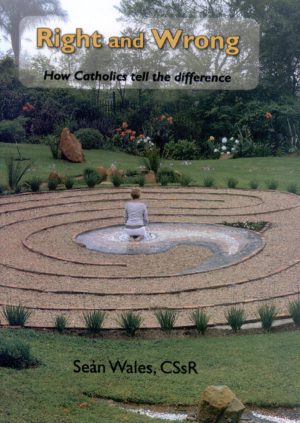The understanding of right and wrong is pivotal to the Bahá’í teachings, which espouse a holistic view of ethics grounded in the principles of unity, justice, and love. In an increasingly complex world fraught with moral ambiguity, the Bahá’í Faith provides profound insights into discerning ethical truths. This guide delineates the teachings on right and wrong, offering readers a comprehensive exploration of how to navigate moral dilemmas through a Bahá’í lens.
1. The Foundation of Moral Philosophy in Bahá’í Teachings
At the heart of Bahá’í ethical convictions lies the belief that morality is not a mere social convention but a fundamental aspect of human existence. Bahá’u’lláh, the founder of the Faith, emphasized the importance of individual perception and the necessity of understanding moral truths through a spiritual lens. Bahá’ís assert that the essence of right action emanates from divine guidance, which is revealed progressively through various religious dispensations, including those of Jesus, Muhammad, and the Bab. Thus, one must engage deeply with the sacred texts to grasp the ethical directives that inform moral reasoning.
2. The Role of Intuition and Reason
Distinguishing right from wrong involves harmonizing intuition with rational inquiry. Bahá’í teachings advocate for the use of both innate discernment and intellectual rigor. Intuition may provide initial insights into moral questions, guiding individuals toward inherent truths. However, this instinct must be complemented by reasoned analysis. Bahá’í writings suggest that “reason is the lamp of the world”; therefore, it is imperative to foster a balanced approach when confronted with ethical dilemmas. The interplay of these two faculties cultivates a comprehensive understanding that transcends subjective biases or societal norms.
3. The Importance of Consultation
Consultation is a cornerstone of Bahá’í practice and is deemed essential in moral deliberation. Engaging in open dialogue allows for the pooling of perspectives, fostering collective insights that an individual alone may not achieve. When groups convene to address ethical concerns, a spirit of unity and cooperation emerges, illuminating the path toward discerning right from wrong. Bahá’ís are encouraged to deliberate thoughtfully, considering diverse viewpoints while remaining respectful and devoid of judgment. This collaborative approach not only enhances personal understanding but also promotes communal harmony.
4. The Impact of Prejudice and Preconceived Notions
Prejudice and preconceived notions serve as formidable obstacles in the quest to understand morality. Bahá’í teachings emphasize the need to eliminate biases rooted in race, nationality, gender, or class. Such prejudices obstruct the clarity of vision required to see ethical situations as they truly are. Recognizing and transcending these barriers is crucial; only then can an individual cultivate a deeper empathy and attentiveness to the needs of others. The Bahá’í principle of oneness reinforces the notion that all humanity is interconnected, urging followers to approach moral questions with an inclusive mindset.
5. The Ultimate Aim: Service to Humanity
In the Bahá’í worldview, the ultimate aim of discerning right from wrong is to enhance service to humanity. Ethical actions are not only evaluated by their immediate consequences but also by their capacity to contribute to the welfare of society at large. This broader perspective necessitates that individual conduct aligns with the greater good. Bahá’ís believe that one’s actions should foster justice, unity, and love among all people. The impacts of choices are assessed not solely from a personal standpoint but also through their implications for community well-being.
6. Applying Spiritual Principles to Daily Life
To implement the teachings of the Bahá’í Faith in everyday encounters requires a practical application of spiritual principles. Ethical dilemmas often arise in professional, familial, or communal settings, where the path to right action may not be immediately apparent. By embodying virtues such as honesty, integrity, and fairness, individuals can align their conduct with Bahá’í teachings. The commitment to living by these principles invariably leads to a life that reflects compassion and moral sophistication.
7. Addressing Moral Disagreements
Discerning right from wrong is complex, especially amidst differing interpretations of ethical standards. While Bahá’í teachings uphold the importance of personal interpretation and individual belief, it is also critical to navigate moral disagreements with grace and understanding. The concept of “unity in diversity” serves as a guiding principle, encouraging Bahá’ís to appreciate differing views while striving for consensus. Engaging with respect and empathy fosters an environment wherein constructive discourse can flourish, thereby enriching moral comprehension.
8. Continuing Education and Reflection
The pursuit of moral clarity is an ongoing journey. Bahá’í teachings highlight the significance of lifelong learning and self-reflection. Engaging regularly with sacred texts, participating in study circles, and attending community discussions all contribute to deepening understanding of right and wrong. Personal contemplation, accompanied by prayer and meditation, further facilitates this process of introspection and moral development. It is through continuous engagement with both individual and communal learning that one cultivates an acute moral sensitivity.
Conclusion
In summation, the Bahá’í teachings provide a robust framework for discerning right from wrong, anchored in spiritual principles and a commitment to service. By blending intuition with reason, fostering consultation, and embracing unity, individuals can navigate the ethical complexities of life with confidence and clarity. The resolve to align personal conduct with the greater good not only enhances individual lives but also contributes to the collective advancement of humanity, demonstrating the pivotal role of morality in the quest for a just and equitable world.
